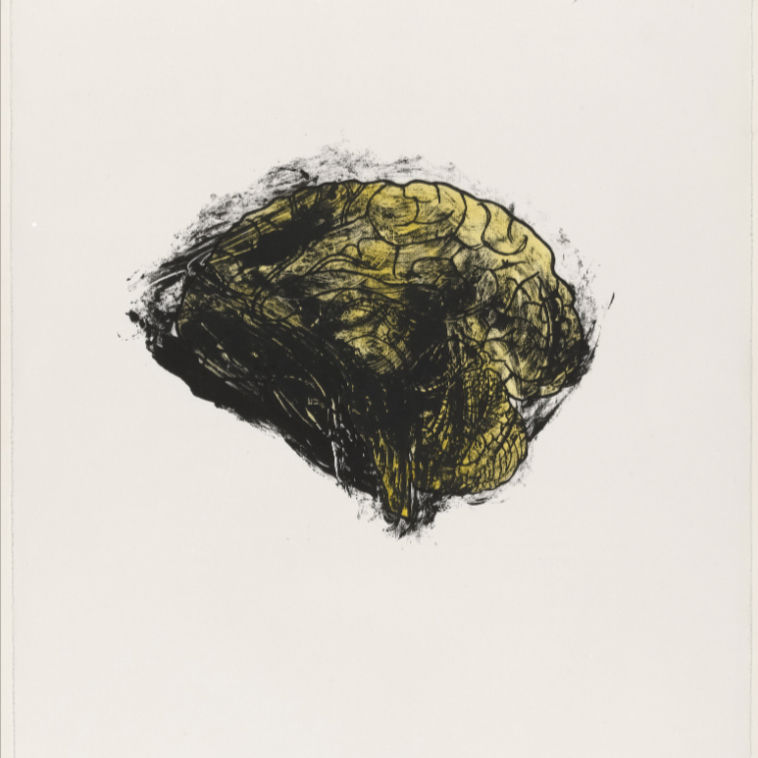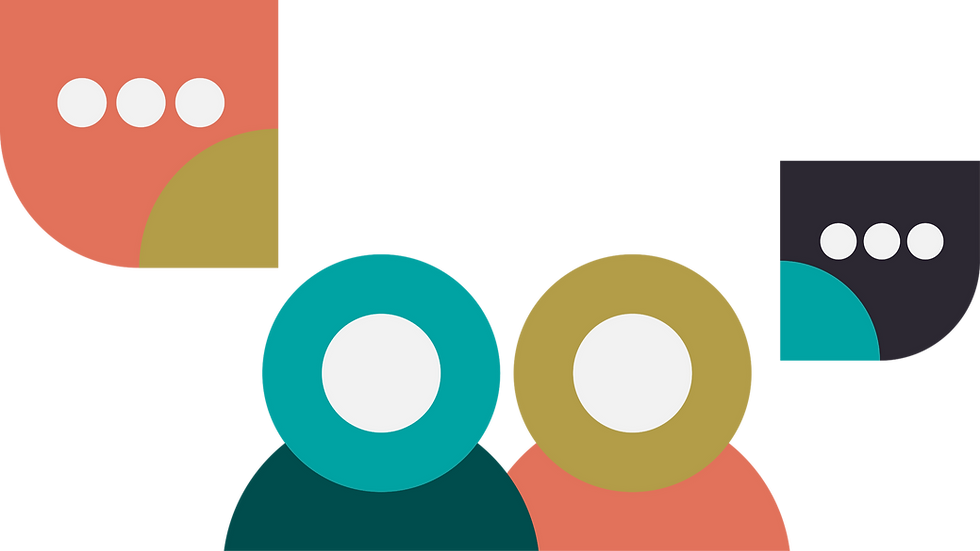Is Thinking All It's Cracked Up To Be?
We live in a culture that celebrates rational thought, analysis, and intellectual problem-solving as the highest human activities. Yet many of us have experienced the paralysis that comes from overthinking, the anxiety of endless mental loops, or the way too much analysis can drain the life out of spontaneous experience. This raises uncomfortable questions about whether our capacity for deep thought is always a blessing.
Sometimes thinking seems to create more problems than it solves, leading us into spirals of self-doubt, regret, or abstract worry that disconnects us from immediate reality.
Other times, our ability to reflect and reason appears to be exactly what makes us human and capable of growth. How do we understand the relationship between thought and living well?
Our conversation will explore:
Can we think too much about our lives and choices?
What is the relationship between self-awareness and happiness?
When does reflection help us, and when does it hold us back?

Is Thinking All It's Cracked Up To Be?

We live in a culture that celebrates rational thought, analysis, and intellectual problem-solving as the highest human activities. Yet many of us have experienced the paralysis that comes from overthinking, the anxiety of endless mental loops, or the way too much analysis can drain the life out of spontaneous experience. This raises uncomfortable questions about whether our capacity for deep thought is always a blessing.
Sometimes thinking seems to create more problems than it solves, leading us into spirals of self-doubt, regret, or abstract worry that disconnects us from immediate reality.
Other times, our ability to reflect and reason appears to be exactly what makes us human and capable of growth. How do we understand the relationship between thought and living well?
Our conversation will explore:
Can we think too much about our lives and choices?
What is the relationship between self-awareness and happiness?
When does reflection help us, and when does it hold us back?

We live in a culture that celebrates rational thought, analysis, and intellectual problem-solving as the highest human activities. Yet many of us have experienced the paralysis that comes from overthinking, the anxiety of endless mental loops, or the way too much analysis can drain the life out of spontaneous experience. This raises uncomfortable questions about whether our capacity for deep thought is always a blessing.
Sometimes thinking seems to create more problems than it solves, leading us into spirals of self-doubt, regret, or abstract worry that disconnects us from immediate reality.
Other times, our ability to reflect and reason appears to be exactly what makes us human and capable of growth. How do we understand the relationship between thought and living well?
Our conversation will explore:
Can we think too much about our lives and choices?
What is the relationship between self-awareness and happiness?
When does reflection help us, and when does it hold us back?
Conversation Catalysts
At Premise, a Conversation Catalyst is a short story, essay, film, or poem that sparks reflection and connection. It’s the shared reference point that grounds each session and opens the door to meaningful and deep conversation.

Notes from Underground by Fyodor Dostoevsky
Preparation: < 3 hours (*this reading is slightly longer than most Premise session but well worth the time!)
%20copy_edited.png)
We consider how excessive self-consciousness can become both a form of insight and a trap.
"Notes from Underground" by Fyodor Dostoevsky
Dostoevsky's underground man is a character tormented by his own hyper-consciousness, unable to act spontaneously because he analyzes every thought and motive. His endless self-reflection leads to paralysis, spite, and isolation rather than wisdom or peace. The story explores how intellectual sophistication can become a prison that separates us from natural human connection and authentic action.
_edited.png)
Notes from Underground by Fyodor Dostoevsky
Preparation: < 3 hours (*this reading is slightly longer than most Premise session but well worth the time!)
We consider how excessive self-consciousness can become both a form of insight and a trap.
"Notes from Underground" by Fyodor Dostoevsky
Dostoevsky's underground man is a character tormented by his own hyper-consciousness, unable to act spontaneously because he analyzes every thought and motive. His endless self-reflection leads to paralysis, spite, and isolation rather than wisdom or peace. The story explores how intellectual sophistication can become a prison that separates us from natural human connection and authentic action.
Conversation Catalysts
At Premise, a Conversation Catalyst is a short story, essay, film, or poem that sparks reflection and connection. It’s the shared reference point that grounds each session and opens the door to meaningful and deep conversation.
Notes from Underground by Fyodor Dostoevsky

Text Set A
Preparation: < 3 hours (*this reading is slightly longer than most Premise session but well worth the time!)
Session Description
We consider how excessive self-consciousness can become both a form of insight and a trap.
"Notes from Underground" by Fyodor Dostoevsky
Dostoevsky's underground man is a character tormented by his own hyper-consciousness, unable to act spontaneously because he analyzes every thought and motive. His endless self-reflection leads to paralysis, spite, and isolation rather than wisdom or peace. The story explores how intellectual sophistication can become a prison that separates us from natural human connection and authentic action.
The underground man embodies the dark side of excessive thinking and self-awareness. Dostoevsky asks: Can consciousness become a curse rather than a gift? What happens when self-analysis replaces genuine engagement with life and other people?
Text Set A
Preparation: < 3 hours (*this reading is slightly longer than most Premise session but well worth the time!)
Session Description
We consider how excessive self-consciousness can become both a form of insight and a trap.
"Notes from Underground" by Fyodor Dostoevsky
Dostoevsky's underground man is a character tormented by his own hyper-consciousness, unable to act spontaneously because he analyzes every thought and motive. His endless self-reflection leads to paralysis, spite, and isolation rather than wisdom or peace. The story explores how intellectual sophistication can become a prison that separates us from natural human connection and authentic action.
The underground man embodies the dark side of excessive thinking and self-awareness. Dostoevsky asks: Can consciousness become a curse rather than a gift? What happens when self-analysis replaces genuine engagement with life and other people?
Conversation Catalysts
At Premise, a Conversation Catalyst is a short story, essay, film, or poem that sparks reflection and connection. It’s the shared reference point that grounds each session and opens the door to meaningful and deep conversation.
More conversation catalysts coming soon!

Text Set B
Preparation: < 3 hours (*this reading is slightly longer than most Premise session but well worth the time!)
Session Description
At Premise, we’re always growing. Our sessions are shaped not only by the enduring questions we ask but also by the ideas and contributions of our participants and Chapter Leaders. We are a constructivist learning community, which means we build our learning experiences together.
More text sets for this question are on the way. Each one will follow our approach: short enough to prepare in under three hours, substantial and thought-provoking enough to spark deep discussion, and accessible to a wide audience.
In the meantime, we’d love to hear from you. If you have a suggestion for a story, essay, film, or poem that belongs here, please share it in the section below.
Text Set A
Preparation: < 3 hours (*this reading is slightly longer than most Premise session but well worth the time!)
Session Description
We consider how excessive self-consciousness can become both a form of insight and a trap.
"Notes from Underground" by Fyodor Dostoevsky
Dostoevsky's underground man is a character tormented by his own hyper-consciousness, unable to act spontaneously because he analyzes every thought and motive. His endless self-reflection leads to paralysis, spite, and isolation rather than wisdom or peace. The story explores how intellectual sophistication can become a prison that separates us from natural human connection and authentic action.
The underground man embodies the dark side of excessive thinking and self-awareness. Dostoevsky asks: Can consciousness become a curse rather than a gift? What happens when self-analysis replaces genuine engagement with life and other people?
